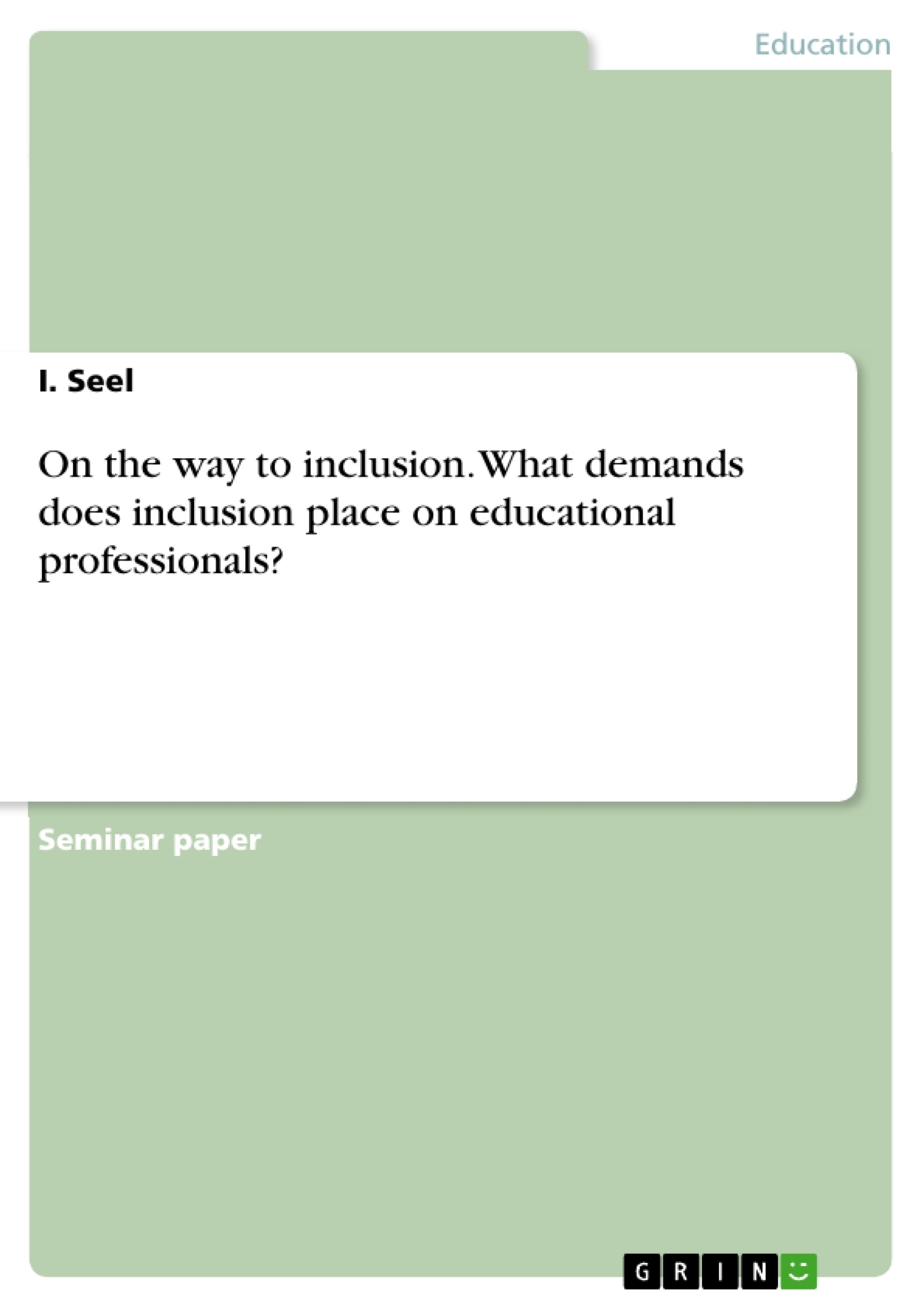With the signing of the UN Convention on the Rights of Persons with Disabilities, inclusion has become the focus of attention. With the demand for inclusion, a paradigm shift is developing in today's education system: all children, regardless of individual abilities and cultural or social affiliation, should grow up and learn together.
"It is normal to be different." These frequently used words express that heterogeneity and diversity are part of our society. Today, a broad spectrum of hetero-geneity can also be found in day-care centres. Day care centres have an important role to play here: as the first non-family educational institution, they should lay the foundation for equal opportunities to participate in education and society. This means that kindergarten concepts should change in such a way that all individual life situations and particularities of the children must be taken into account. Who and how should realise it? Scientists and educators agree on this. The professionals working in the day care centre are the ones who are to implement and realise inclusion in practice. Their personality, their attitude, their motivation, their expertise, their influence and their willingness to cooperate are decisive for the implementation and success of inclusive processes in early childhood education.
The limited scope of this paper only allows for a simplified questioning and so I would like to search for answers to the question "What demands does inclusion make on pedagogical professionals? I will start with the legal mandate to implement inclusion processes in day care centres and explain the goals of inclusive education in heterogeneous groups. I will then describe increasing demands on educators' competences and go into some aspects of shaping the inclusive process.
Inhaltsverzeichnis (Table of Contents)
- Introduction
- Inclusive processes in kindergarten
- Requirements for educator skills
- Research attitude
- Biographical work
- Expertise, experience and training
- Aspects of dealing with inclusion
- Teamwork
- Kindergarten group
- Pedagogical interventions
- Useful framework
- Individual support
- Cooperation with parents
- Summary
Zielsetzung und Themenschwerpunkte (Objectives and Key Themes)
The purpose of this work is to analyze the requirements for inclusion in daycare centers and identify the skills and knowledge necessary for educators to effectively implement inclusive practices. This analysis is guided by the legal mandate to implement inclusion processes and the evolving understanding of diversity in early childhood education.
- The need for educator skills to address the growing diversity in kindergarten groups, including children with different abilities and cultural backgrounds.
- The importance of a research-based attitude in early childhood education to address the challenges of diversity.
- The significance of biographical work for educators to reflect on their own experiences and develop cultural sensitivity.
- The role of teamwork and cooperation with parents in promoting inclusion in kindergarten settings.
- The necessity of pedagogical interventions and a supportive framework for all children, regardless of their individual needs and abilities.
Zusammenfassung der Kapitel (Chapter Summaries)
- Introduction: This chapter sets the context for the study by outlining the legal mandate for inclusion in early childhood education and emphasizing the growing recognition of diversity in kindergarten settings. It highlights the crucial role of educators in implementing inclusive practices and emphasizes the need for specialized skills to address the needs of all children.
- Inclusive processes in kindergarten: This chapter examines the challenges and opportunities of implementing inclusion in kindergarten settings. It explores the diverse needs of children in today's society, acknowledging the presence of various forms of heterogeneity, including cultural backgrounds, disabilities, and learning styles. The chapter emphasizes the importance of creating an inclusive environment that values and supports the needs of all children.
- Requirements for educator skills: This chapter delves into the specific skills and knowledge that educators need to effectively implement inclusive practices. It explores the importance of a research-based attitude, biographical work, and the development of cultural sensitivity. The chapter underscores the need for educators to be well-informed about the challenges and opportunities of diversity in early childhood education.
- Aspects of dealing with inclusion: This chapter examines key aspects of fostering inclusion in kindergarten settings. It emphasizes the significance of teamwork, cooperation with parents, and the development of a supportive framework for all children. The chapter also explores the importance of pedagogical interventions that cater to the individual needs of each child.
Schlüsselwörter (Keywords)
This work explores the key themes of inclusive education, early childhood education, educator skills, diversity, heterogeneity, cultural sensitivity, biographical work, pedagogical interventions, teamwork, cooperation with parents, and the legal mandate for inclusion.
Frequently Asked Questions
What is the main goal of inclusive education in daycare centers?
The goal is a paradigm shift where all children, regardless of individual abilities or cultural backgrounds, learn and grow together, recognizing that diversity is normal.
What role do educational professionals play in the inclusion process?
Educators are the key implementers. Their personality, expertise, motivation, and willingness to cooperate are decisive for the success of inclusive processes.
Why is biographical work important for educators?
Biographical work allows professionals to reflect on their own experiences and develop the cultural sensitivity needed to manage heterogeneous groups effectively.
What are the legal requirements for inclusion in Germany?
The signing of the UN Convention on the Rights of Persons with Disabilities provides the legal mandate for implementing inclusive processes in educational institutions like kindergartens.
How does teamwork contribute to successful inclusion?
Inclusion requires close cooperation within the team and with parents to create a supportive framework and tailored pedagogical interventions for every child.
What is meant by a "research-based attitude" in this context?
A research-based attitude helps educators constantly analyze and adapt their practices to meet the evolving needs of a diverse group of children.
- Arbeit zitieren
- I. Seel (Autor:in), 2015, On the way to inclusion. What demands does inclusion place on educational professionals?, München, GRIN Verlag, https://www.grin.com/document/1145345



